1. Don’t Speed Through Main Street in Small Towns

In many small towns, there’s an unwritten rule that you should never speed down the main street, even if the speed limit allows it. Main streets are typically lined with small businesses, and locals tend to treat the area with a lot of respect. People slow down, whether they need to or not, because it’s seen as the heart of the community. It’s a gesture of care, ensuring that the town doesn’t feel like a place where you’re just passing through.
Though it’s not an official law, you’ll often notice the townspeople exchanging disapproving looks if someone zooms by a little too fast. The rule is mostly about keeping the peaceful vibe intact and showing respect for the neighborhood. It’s all about looking out for each other, and speeding through might seem like you’re ignoring that sense of unity. Newcomers often learn quickly to keep it slow when they see the locals obeying this unspoken tradition.
2. Don’t Be Late to the Town’s Annual Event

Every small town has its own unique annual event—a parade, festival, or community picnic—and the unspoken rule is clear: don’t be late. If you show up after it’s started, you’ll likely miss out on key moments and be seen as someone who doesn’t prioritize the town’s traditions. These events often serve as a time for everyone to gather, reconnect, and celebrate the community. Being punctual isn’t just a courtesy—it’s part of what keeps the town’s spirit alive.
The whole town will usually be in attendance, and arriving late could mean missing the most exciting parts, like the start of the parade or the first round of food being served. People take these events seriously because they’re a rare opportunity to feel united. For those new to town, it can take a while to understand how much preparation and anticipation go into these gatherings. So, even if it’s not “official,” showing up on time is one of those rules you’ll want to follow.
3. Don’t Talk Politics at the Local Diner

In most small towns, there’s an unspoken rule about avoiding politics in the local diner or coffee shop. These spots are community hubs where people come to relax and chat about the weather, kids, or the latest gossip, but not the state of the nation. Politics are often seen as a divisive topic that could ruin the friendly atmosphere. It’s understood that these places are for bonding, not for heated debates.
The local diner is where you can talk about everything from how your garden’s growing to who won the latest high school football game. Politics? Not so much. This unwritten rule ensures that the community stays close-knit and drama-free, at least during meal times. If you do slip up and bring up politics, you might notice people subtly change the subject or give you the side-eye, a sign that the diner’s vibe should remain lighthearted.
4. Always Wave to Neighbors When You Drive By

In small-town America, it’s considered good manners to wave at your neighbors when you pass by their house. It doesn’t matter if you’re on a long drive or just running errands—it’s expected. The wave might be brief, but it signifies a connection and a shared understanding that you’re part of the same community. It’s a nonverbal acknowledgment that says, “I see you, I recognize you, and I’m happy to be here with you.”
It’s an easy habit to get into when you realize everyone knows everyone. The rule might feel strange at first, especially if you’re used to the anonymity of bigger cities, but it quickly becomes second nature. Locals do it without thinking, and if you’re new to town, you’ll notice that you’ll likely be waved at first. It’s just part of the social fabric that makes small towns feel like home.
5. Always Offer to Lend a Hand During Harvest Season

When harvest season rolls around, there’s an unwritten rule that neighbors help each other out, no questions asked. It doesn’t matter if you have experience or not—if someone’s working their land, you pitch in. This tradition comes from a time when everyone had to rely on each other to get through important seasons like harvest. It’s about sharing the labor and ensuring that everyone in the community has enough to make it through the winter.
Offering help during harvest is a way of reinforcing the town’s sense of solidarity and shared responsibility. Whether it’s picking vegetables, gathering firewood, or helping with animals, there’s always something to do. Refusing an offer to help is considered bad form because it goes against the spirit of community. It’s all about knowing that together, everyone’s burdens are lighter.
6. Don’t Drive on the “Quiet” Roads at Night
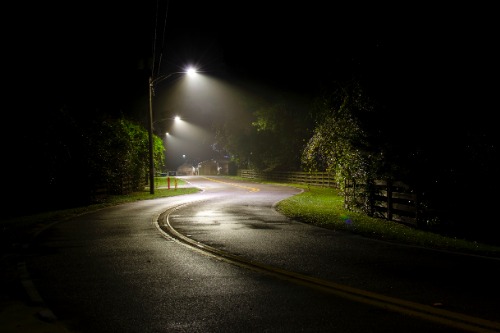
In small towns, there are certain roads that locals just don’t use after dark. These roads are often the quieter, more secluded paths that might seem perfect for a late-night drive. But there’s an unwritten rule that you don’t go down them unless you have a good reason. The reasons for this range from superstition to the fact that some of these roads have been the site of past accidents or strange occurrences.
This rule often feels like a blend of respect for local lore and a simple desire to avoid unwanted attention. Many towns have stories of mysterious events that happened along these roads, so locals avoid them in the evenings to keep the peace. If you’re new to town, it might take you a while to figure out why no one seems to use certain routes after sunset. The unwritten rule is a quirky way to honor the town’s history, however strange it may seem.
7. Don’t Walk Around Without Saying Hi
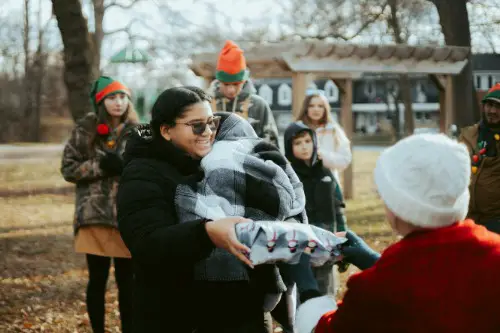
In some small towns, it’s considered rude not to greet people as you walk around, even if you don’t know them. There’s an unspoken rule that walking past someone without a simple “hello” or wave can make you seem standoffish. In a close-knit community, this greeting shows that you’re part of the social fabric, acknowledging the shared space and connection. It doesn’t matter if you’re walking to the store or just out for a stroll—you’re expected to interact.
This rule is about fostering a sense of friendliness and making sure no one feels invisible. It’s a small gesture, but it carries a lot of weight in making everyone feel included. Newcomers might initially feel awkward about the constant greetings, but soon enough, they’ll get the hang of it. In a small town, a simple “hi” can be the start of a meaningful connection.
8. Don’t Ask for Directions, Just Follow the Landmarks
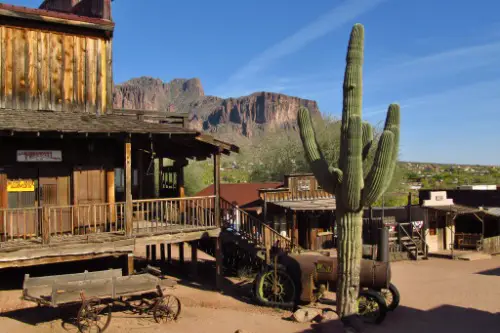
In some small towns, it’s not uncommon for people to give directions based on landmarks rather than street names. “Turn left at the big oak tree” or “Head past the old gas station” are the kinds of directions you’ll hear. The streets might not have been renamed in decades, so locals simply navigate by things they’ve always recognized. It’s an unspoken rule that if you’re in a small town, you should learn these landmarks quickly.
It might seem confusing at first if you’re used to GPS and street signs, but following the landmarks is part of the charm. It’s a way for the community to stay connected to the history of the town. For those unfamiliar with the area, it’s a fun challenge to figure out where the big oak tree is or where the old gas station used to be. But once you know the landmarks, you’ll feel like you’re truly part of the town.
9. Don’t Skip the Annual Town Meeting

In many small towns, there’s an annual town meeting that’s more than just a formal event—it’s a tradition. The unwritten rule is that you absolutely must attend if you want to be considered part of the community. This meeting is where decisions about local ordinances, budgets, and events are made, but it’s also where you show that you care about the town’s future. It’s a chance to mingle, share your thoughts, and participate in the town’s ongoing narrative.
Not showing up to the annual meeting is considered a sign that you’re not invested in the town’s well-being. Locals take pride in their town and often look forward to this event as a social occasion. It’s also a place where you can learn about upcoming projects or potential changes to local policies. Even if it’s not mandatory, the unwritten rule is clear—being present means you’re involved.
10. Never Talk About Moving Away

In small towns, there’s an unspoken rule that you shouldn’t openly discuss moving away unless you absolutely have to. The idea is that leaving the town can be seen as a betrayal of sorts, especially if you’ve lived there for a long time. It’s not that anyone actually stops you from moving—it’s just understood that it’s a sensitive topic. Many locals hold deep ties to the area, and the thought of someone leaving feels like it could break that sense of unity.
For those who do move, it’s usually done quietly. People might understand if you’re leaving for work or family reasons, but talking about it too freely might raise eyebrows. The rule is rooted in a sense of permanence and commitment to the town’s legacy. Staying in the town, even when opportunities lie elsewhere, is a subtle sign of loyalty to the community.
11. Don’t Forget to Wave at the School Bus
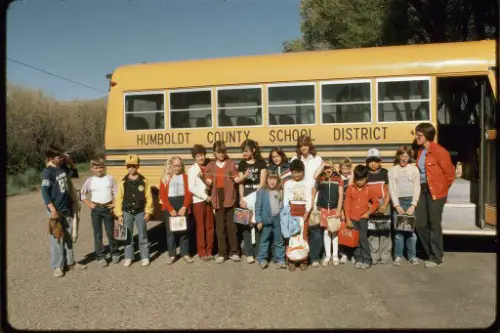
In many small towns, especially during the school year, there’s a rule that if you see the school bus, you should always wave. It’s a way of acknowledging the kids on their way to or from school, showing that you care about the next generation. Waving at the bus is a small, symbolic gesture that reminds everyone that the community supports its young people. It’s not just about the bus—it’s about showing solidarity and taking pride in the kids who are growing up in your town.
If you forget to wave, you might hear about it from a local or two, as it’s one of those unwritten expectations that shows you’re plugged into the community. Locals often joke that waving at the bus is like an unofficial rite of passage. It’s just one of those things that lets everyone know you’re part of the rhythm of daily life. Whether you’re a parent or just a friendly neighbor, this wave is a sign of good citizenship.
12. Always Wear Your Best to Church on Sunday
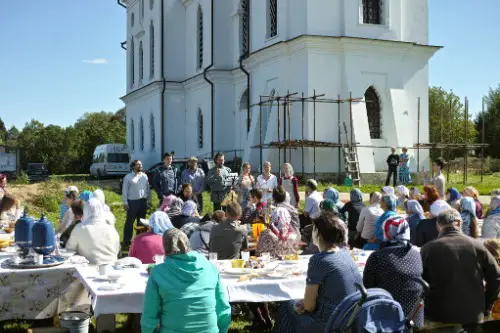
In small towns, church on Sunday isn’t just a religious event—it’s a social gathering, too. The unwritten rule here is that you always dress your best when attending Sunday service, even if you’re just sitting in the pews. This tradition comes from the community’s desire to show respect for both the sacred and the social aspects of the gathering. Sunday is a time to show your pride in the town, and dressing up is part of that.
Even if the weather is bad or it’s an off week, wearing something nice is a mark of respect for both the church and the community. It’s a tradition that might feel a bit old-fashioned, but it’s still very much alive in many towns. For those new to town, this rule is one that can make you stand out—either because you follow it or because you don’t. In small towns, looking your best is more than just about appearance; it’s about honoring the collective spirit of the community.
13. Keep the Front Porch Light On

In small towns, it’s common practice to keep your front porch light on at night. This rule isn’t about security (though it does help with that) but more about showing that you’re home and part of the community. The light is a sign of welcome to anyone who might pass by, signaling that the home is open and safe. It’s an old tradition rooted in hospitality and neighborliness.
Locals often take it as a sign that you’re available for a quick chat or visit, even if just from the front porch. The porch light offers a sense of comfort to passersby who know that someone is there. In a way, it’s one of the small acts that ties people together in these close-knit communities. Forgetting to leave the light on might make you feel a little out of place, especially during the long, quiet nights of small-town life.


